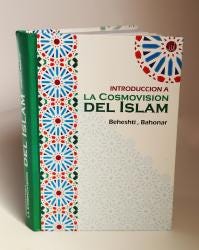In Introducción a la Cosmovisión del Islam [Introduction to the Worldview of Islam], published in 1988 in Qom, Islamic Republic of Iran, by the Fundación Cultural Oriente, Mulammad Husain Beheshti and Muhammad Yauád Bahonar describe what is in essence, more than an Islamic worldview, but a spiritual worldview based in the Judaic-Christian-Islamic tradition. I propose in today’s commentary to present the spiritual worldview that has been formulated by Beheshti and Bahonar. I will maintain, furthermore, that the spiritual worldview of the Judaic-Christian-Islamic tradition coincides with the political ideology and the implicit epistemology of the Third World nations that are seeking, with the support of China, to develop an alternative economic world order and a more just and sustainable world-system.
Beheshti and Bahonar maintain that the quest for knowledge and truth ought to be the primary objective of individuals and societies. All humanity ought to be driven by a que…



